Secretary of War George W. McCrary informs Assistant Secretary of the Interior A. Bell that he does not have authority to allow Lieutenant Melville C. Wilkinson to engage in Indian education as Richard Henry Pratt is already in that line of work. Instead, Wilkinson will be sent to a college in Oregon where certain Indian youth can be sent.…
Schurz, Carl
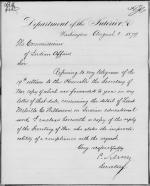
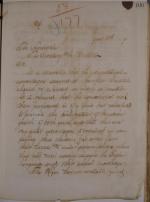
A letter wherein Commissioner of Indian Affairs Ezra A. Hayt writes to Secretary of the Interior Carl Schurz to recommend expanding the kind of educational program pursued at Hampton for "the civilization of Indian youth of both sexes… far away from their homes". Hayt requests that the Secretary of War approve the use of Carlisle Barracks in…
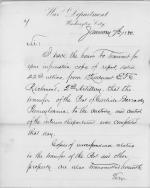
Secretary of War Alex Ramsey transmits to Secretary of the Interior Carl Schurz a report from Lieutenant E. T. C. Richmond indicating that the transfer of the Carlisle Barracks from the War Department to the Interior was completed on January 6, 1880 and correspondence regarding said transfer. Also attached is an official order from Major…
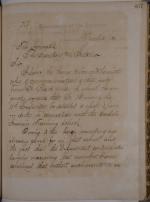
Acting Commissioner Edward J. Brooks forwarding Captain Richard Henry Pratt's request to Secretary of the Interior Carl Schurz for Lt. Brown, 11th Infantry, be detailed to report to Pratt and the Carlisle Indian School on a permanent basis. Pratt requested Brown in order to help maintain discipline since the number of students has increased.…
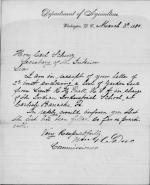
Commissioner of Indian Affairs William G. LeDue informs Secretary of the Interior Carl Schurz that Richard Henry Pratt's request for garden seeds has been filled.
Note: This item was copied from U.S. National Archives microfilm reels (M234), which were filmed from the original documents found in Record Group 75, Entry 79, "Letters…
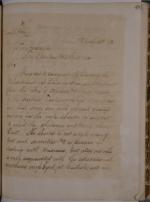
Acting Commissioner of Indian Affairs Edward J. Brooks wrote a letter to the Secretary of the Interior Carl Schurz lobbying for an experienced person to be sent to Colorado and New Mexico to recruit students from the Tribes of those states. Brooks stressed the need for the individual to be competent in their knowledge of dealing with Tribes and…
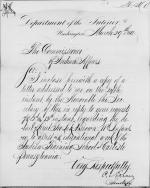
Secretary of War Alexander Ramsey informs Secretary of the Interior Carl Schurz that he is declining the Commissioner of Indian Affairs' request to allow Lieutenant George LeRoy Brown to recruit Indian students from nations in Colorado and New Mexico and transport them to the Carlisle Indian School because it is not a military duty. Schurz…
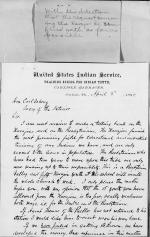
Richard Henry Pratt argues to the Secretary of the Interior Carl Schurz that his approval for the school to recruit 15 Navajo students is insufficient, and he would like to recruit 50. Pratt writes that the Presbyterian Church has had 10 years to educate the Navajo nation and has failed to make significant progress, but if the Carlisle Indian…
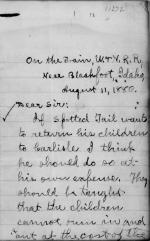
Secretary of the Interior Carl Schurz informs Assistant Secretary of the Interior A. Bell that, if Spotted Tail wants to return his children to the Carlisle Indian School, he has to do it at his own expense. Schurz continues on to write about matters unrelated to Carlisle.
Note: This item was copied from U.S. National Archives microfilm…
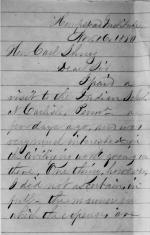
E. Hind states that he recently visited the Carlisle Indian School and was very impressed by the work being done there. He asks for information on how the school pays its expenses and for specific details on the Civilization Fund.
Note: This item was copied from U.S. National Archives microfilm reels (M234), which were filmed from the…
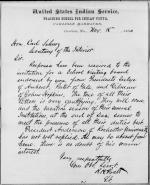
Richard Henry Pratt informs Secretary of the Interior Carl Schurz that the presidents of Amherst, Yale, Johns Hopkins, and Rochester universities are all invited and will visit the Carlisle Indian School near the end of December.
Note: This item was copied from U.S. National Archives microfilm reels (M234), which were filmed from the…
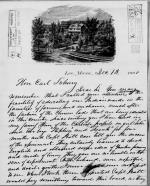
Alexander Hyde writes to Secretary of the Interior Carl Schurz about his experience as an outing host for three Carlisle Indian School students, Lulu, Stephen, and Frank, in the Summer of 1880. Hyde states that he heard about outing from his daughter, Mary R. Hyde, who works as a girl's matron at Carlisle and that he enjoyed his time as a host…
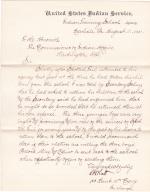
Richard Henry Pratt recommends the return of Pollock, Max, and Oliver Spotted Tail to Carlisle if an opportunity presents itself rather than having the cost born by their family.
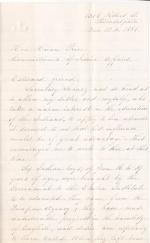
Susan Longstreth writes to the Hiram Price, the Commissioner of Indian Affairs, in support of transferring six Quapaw Nation students from the Emlen Institute to the Carlisle Indian School.
